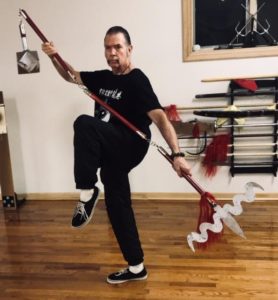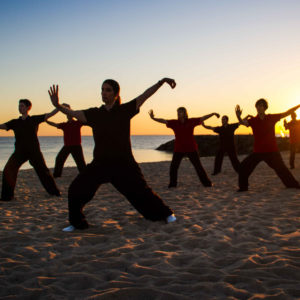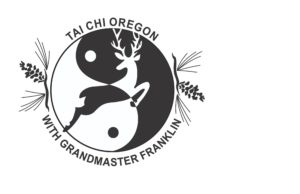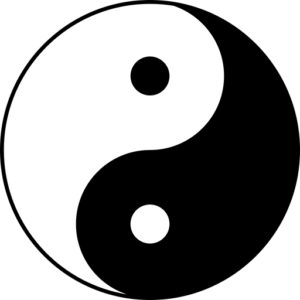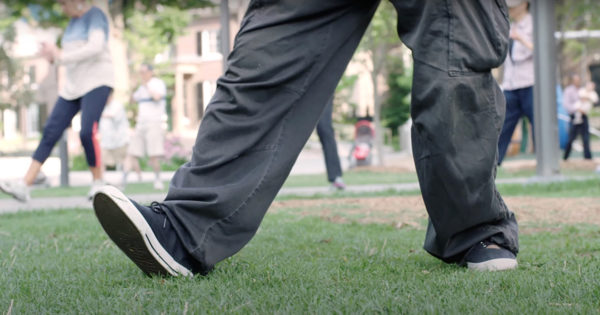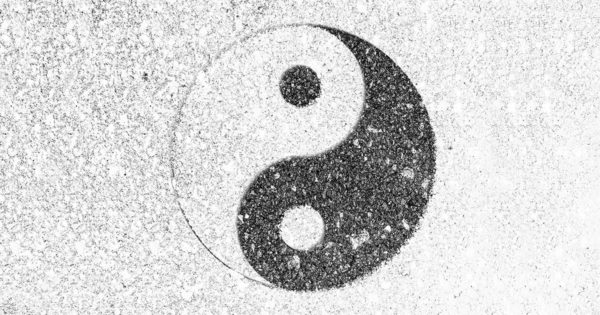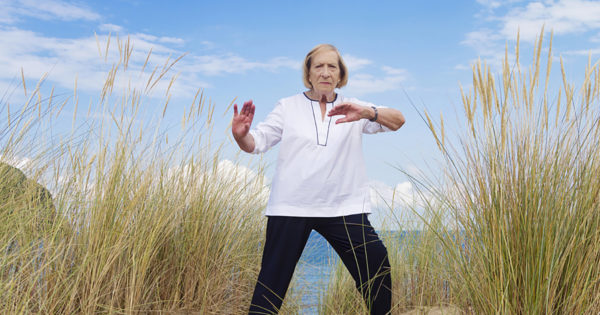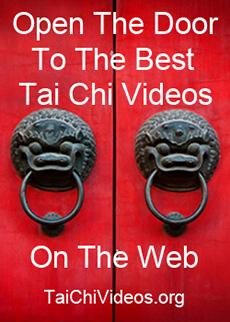Slanted FlyingJournal of Tai Chi Chuan
Training
Finding Feedback in Taijiquan
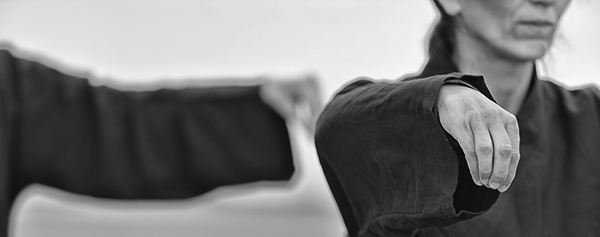
UNDERSTANDING THE OPPONENT:
Sensing how one’s body responds to a partner/opponent introduces feedback that one does not get during solo training. When practicing solo, one is responding to the constant downward force of gravity, but a partner/opponent will subject you to irregular forces from other directions. You are no longer dictating all of your movements, especially when engaged in non-cooperative interactions with the partner/opponent.
When the partner/opponent disrupts your sense of unity by causing you to tense or resist, or by disrupting your balance, etc, you receive valuable feedback that you can use to improve. Ideally one will have the knowledge and awareness to find the source of the disruptions and know what to adjust to improve.
One should be able to focus more on the partner/opponent than on themselves if they have achieved the previous level. But practitioners will need to return to the previous stages whenever they find imperfections in how they interact with others. If someone cannot understand what is contributing to the difficulties, then they will need help from teachers who have the knowledge and skill to be able to evaluate the situation and to provide the needed feedback.
At this stage, one may be “in the zone” or enter a “flow state” as described in sports or psychology. One does not seem to need to focus on the specifics of what they are doing (sometimes described as being “unconscious” or “in the moment”), yet they are very aware of their surroundings, and their actions are just “right” for the situation, and produce the desired outcome seemingly without the normal effort that those not in this state use.
Many practitioners of interactive Taijiquan have experienced a time when their seemingly effortless action caused an unexpectedly great effect on their partner/opponent. This is when things are “correct” even though one may have difficulty replicating the experience. When we are not “in the zone” and try to practice what seemed so natural and effortless previously, the same task takes more concentration, more effort, and is less effective!
At the same time that one is using interactions with a partner/opponent to gain feedback on one’s own structure, alignment, movement, energy, etc. they are also gaining an understanding of these same qualities in their partner/opponent. Things that one can take advantage of in a partner/opponent are the same things that one should seek to avoid in one’s own body.
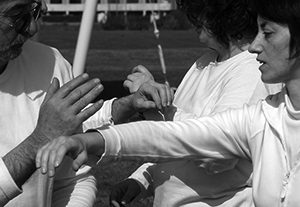 Practitioners should be cautious in evaluating their abilities when controlling a partner/opponent, since the ego can once again deceive us. It is certainly possible to control a partner/opponent even when violating some Taijiquan principle, so we need to not only evaluate the ability to control, but also the means by which it is done. For example, we do not want to be controlling them by simply relying on being physically stronger than them.
Practitioners should be cautious in evaluating their abilities when controlling a partner/opponent, since the ego can once again deceive us. It is certainly possible to control a partner/opponent even when violating some Taijiquan principle, so we need to not only evaluate the ability to control, but also the means by which it is done. For example, we do not want to be controlling them by simply relying on being physically stronger than them.
When interacting non-cooperatively with a partner/opponent, there are some additional means of feedback that may not be evident in the slower and gentler solo forms practice. Practitioners can gain feedback from such things as heart rate, muscle fatigue or soreness, easy or labored breathing, endurance or tiring, clumsy and loud stepping or agile and quiet steps, etc.
Those who enter push-hands (推手 tui shou) competitions, or who fight, can also gain feedback from their wins and losses, although win/loss records would depend on the quality of the competition. Competitions can also be deceptive for feedback since the goal of many competitors will be to win, regardless of whether or not they are rigorously following Taijiquan principles.
RESOURCES:
In the early days of Taijiquan, most feedback came from one’s own teacher and classmates. When that teacher had relationships with other martial artists that could help the student, then letters of introduction and recommendation could be given to a student allowing them, if accepted, to study with others. Sometimes instruction remained within a family or within a village for self protection purposes. Sometimes martial arts instruction took on a more public or commercial aspect in security companies, military units, and even bandit gangs or rebel groups, or theater or street performances.
In the past, knowledge was primarily passed on through oral traditions and personal instruction. Today is very different. Martial arts manuals became more common in the 20th century, and today many are commonly available in English translations as well as original materials in written and video formats. However, the quality this mass produced and readily available material is not guaranteed.
In the past, school owners in China had to accept challenges by other martial artists. If they were defeated, they would cede their school to the victor. This ensured that those teachers were of the highest quality. Today anybody can start a school, write books or articles, and post or sell videos, and as long as they have a market, their skill does not need to be the highest.
The wealth of available materials in modern times can be a source of feedback, but one must be conscious of the possibility that some information is unreliable. If information seems to contradict ones understanding of Taijiquan, then unbiased reflection is needed to determine if the information is wrong, or if your understanding is incomplete.
Differing perspectives that seem incompatible may actually help one to evaluate their understanding of a topic, and if one’s understanding is comprehensive enough, then one may find that the differences are just illustrating different language use or different emphases.
While objective feedback that can help practitioners improve their skill in Taijiquan can be difficult to find, it is important to try to learn as much from feedback as one can. Seek out feedback of as many types as you can, and the chances for improving your Taijiquan increases. In any case, both physical practice and theoretical inquiries should be used to provide practitioners with feedback, since feedback is what allows practitioners to improve.



